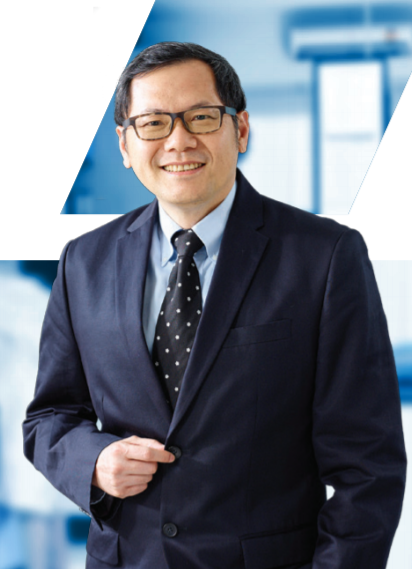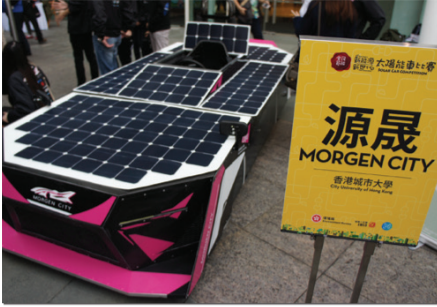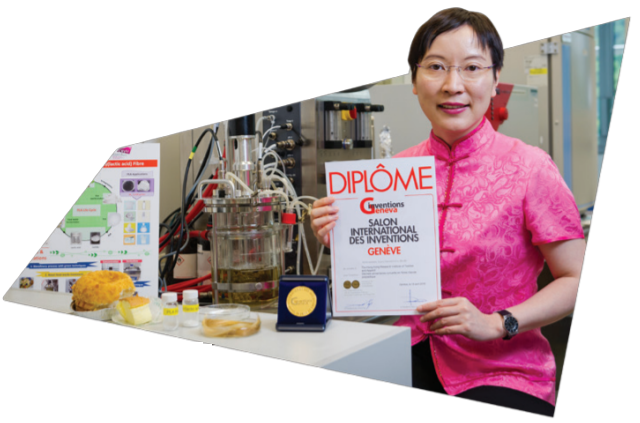Professor Chan Chak-keung, Dean of the School of Energy and Environment, explains how the School is fostering professionals to sustainably energise Asia’s future.
Q: What are the pressing environmental issues we face and how do they affect our lives?
A: The energy crisis, global warming, climate change and pollution are especially pressing in Asia, where large quantities of carbon dioxide have been released to fuel economic growth. Providing safe, reliable and cheap energy with minimal environmental impact is one of the grand challenges of the 21st century in relation to sustainability. The School of Energy and Environment trains professionals to provide innovative solutions.
The concept of “planetary boundaries defining the safe operating space for humanity” is also vital. This refers to
man-made pressures and the limits that the earth can withstand, including issues such as depletion of resources, ocean acidification, decrease in diversity, and excessive phosphorus and nitrogen in aqueous ecosystems.
Q: How does the School of Energy and Environment seek to address these pressing environmental issues?
A: The School is dedicated to nurturing professionals who can tackle environmental issues and enhance sustainability. We are the first and only School in the region specialising in sustainability, energy and environmental issues from an interdisciplinary perspective, undertaking cutting-edge research and providing professional education in energy and environment-related issues since our establishment in July 2009. More than 150 students have earned their MSc degree here and the founding graduates from the four-year BEng in Energy Science and Engineering, the first undergraduate programme of its kind in Hong Kong, completed their studies in 2016. We will also launch a BEng programme in Environmental Science and Engineering and a Minor in Sustainability in 2017. Such education opportunities are essential to train professionals and experts in the field over the long term.
As our mission states, the School strives to advance research in targeted themes of benefit to society’s needs in energy, environment, and sustainability; educate engineers and professionals at undergraduate and graduate levels in these three areas, adopting holistic approaches which provide innovative solutions to local and regional problems; and maintain a collaborative and supportive atmosphere for students, faculty, alumni and other stakeholders in advancing our interdisciplinary research and educational objectives.
The development of a solar electric car, which was designed, built and proudly presented by a CityU interdisciplinary student team at the 2016 “New Energy New Generation” Solar Car Competition, is an illustration of how we are combining education, research and innovative practical action. The contest was organised by the Hong Kong government’s Environment Bureau and Electrical and Mechanical Services Department.
Q: What recent cutting-edge research has the School conducted to improve the quality of our environment?
A: The School’s interdisciplinary faculty has research expertise in numerous key areas for a sustainable future,including atmospheric and climate science, bioscience in energy and environment, energy efficiency andconservation, energy generation, conversion and storage, energy and environmental policy, economics andmanagement, and water environment technology.
One example of the many exciting research projects at the School is the novel biorefinery process that turns foodwaste into textile fibre and won a Gold Medal and jury’s commendation at the 44th Geneva International Exhibitionof Inventions in 2016. The technological breakthrough, led by Assistant Professor Carol Lin (picture below), couldprovide a solution to help manage the 3,600 tonnes of food waste produced in Hong Kong every day. Otheradvances include Associate Professor Wey Yang Teoh’s PhotoFuelCell, constructed from specially designednanostructured photoelectrodes and featured on the cover of ChemSusChem journal and his work on advancedelectrolyte material research for fuel cells, which has appeared on the front of CrystEngComm journal. Dr Teoh’steam is now collaborating with the Hong Kong government’s Drainage Services Department to design a device toharness electricity from the city’s different domestic wastewater sources.
In addition, we are particularlyexcited about the School’s highsuccess rates in grant applications.These include receiving funding for10 out of 18 applications in theGeneral Research Fund/EarlyCareer Scheme in 2016-17.




